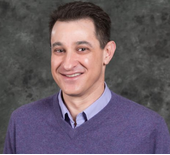The Republican candidates for governor are offering voters a range of opinions on whether the public education system should be expanded to include preschoolers.

Supporters of government-funded early childhood education contend such taxpayer investments have proved their worth by getting children ready to succeed in school. Opponents contend research on whether government-funded prekindergarten pays off suggests the definitive answer is somewhere between “sometimes” and “maybe, but maybe not.” But even if prekindergarten is important to long-term educational outcomes, it’s best to keep government out of it.
U.S. Rep. Raul Labrador said he supports early childhood education but not a government-funded system, noting problems with the existing K-12 education system.
“The future of our state is tied to a strong education system. Unfortunately, our current education system is bogged down by mandates, regulations, and arbitrary requirements from a heavy-handed bureaucracy that believes it can educate our kids better than our teachers, parents, and local administrators,” Labrador said. “Why would we want to expand that system? Instead, I support market-driven solutions. Today, children of all ages, rural or urban, rich or poor, can access courses designed for preschoolers, often at little or no cost. The state’s role should be to get out of the way and let these innovative solutions take hold.”
Three years ago, Boise businessman Tommy Ahlquist supported Boise Democrat Hy Kloc’s bill to create a preschool pilot program that drew most of its funding from the private sector and about $600,000 from the state. He remains supportive of early childhood education, but he’s more measured about who should take the lead. Ahlquist says the government’s focus should be on improving the K-12 education system.
“Recently, I have witnessed firsthand a private solution in one of our communities that provides an example of addressing pre-K without government involvement. This year in Caldwell, thanks to a private collective impact project without any government involvement, pre-K is offered at each elementary without having the state involved,” Ahlquist said. To be clear, the program Ahlquist cites uses some government resources, namely, school buildings and some federal money for children with learning disabilities.
“Grass roots efforts that involve the private sector, nonprofits and community organizations built to solve problems will always outperform any government solution. These are exactly the kinds of conservative solutions we need in Idaho. The role of government should be to get out of the way of these efforts and cut any red tape that threatens getting things done,” Ahlquist said.
Lt. Gov. Brad Little has also voiced support for prekindergarten in the past. At a legislative hearing earlier in the year, Little voiced support for prekindergarten. His campaign said Little remains open to government funding.
Little said, “I believe the best solutions to educating our children come from the individual communities that each child is raised in, giving those teachers, parents and students local control. This is especially important as we consider early childhood education and ways to improve reading proficiency for our students at the end of the third grade. If the Legislature does choose to pursue early childhood education options, I strongly believe it should be up to local school districts and parents to decide the form it takes in their communities and schools.”
